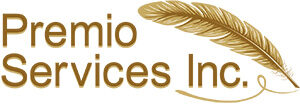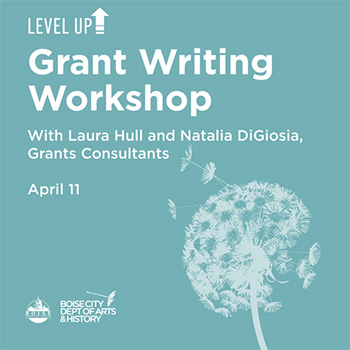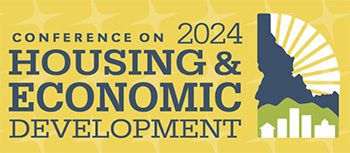
Unlock Funding Opportunities: April Grant Workshop Events with Laura Hull and Natalia DiGiosia
04/01/2024
Are you ready to take your grant writing skills to the next level? Join our professional grant consultants Laura Hull and Natalia DiGiosia this April for a series of workshops designed to empower you with the knowledge of a grant writer and strategies needed to secure, sustain, and scale funding for your nonprofit.
Grant Readiness and Writing Workshop (Track 1) – City of Boise Department of Arts & History
Date: April 11, 2024
Time: 9:00 AM – 12:00 PM
Location: Boise City Hall – 150 N Capitol Blvd, Boise, ID 83702
Designed for smaller nonprofits. Dive into the fundamentals of grant writing with Laura Hull and Natalia DiGiosia in this engaging workshop. Learn how to craft compelling proposals, effectively demonstrate outputs and outcomes, and navigate the grant research and application processes with increased confidence. Whether you’re a novice grant writer or seeking to refine your skills, this session will provide valuable insights to help you reach your funding goals by equipping you with tools and tactics needed to stand out in a competitive funding landscape.
Grant Writing and Management Workshop (Track 2) – City of Boise Department of Arts & History
Date: April 11, 2024
Time: 9:00 AM – 12:00 PM
Location: Boise City Hall – 150 N Capitol Blvd, Boise, ID 83702
Designed for larger nonprofits. Join Laura Hull and Natalia DiGiosia for an in-depth exploration of advanced grant strategies. This session will build on Grant Readiness and include success tips for winning well-aligned grants, efficient grants management, and sustaining and scaling programs for a healthy grants portfolio. Gain insider tips for maximizing your grant opportunities, developing persuasive narratives, and building strong relationships with funders.
Successful Grant Writing Workshop – 2024 Conference on Housing and Economic Development with Idaho Housing and Finance Association (IHFA)
Date: April 23, 2024
Time: 9:30 AM – 10:30 PM
Location: Boise Center, Room 110CD
Elevate your grant writing game with actionable strategies and tips! Don’t miss this workshop led by Laura Hull. This workshop will provide valuable guidance for advancing your organization’s funding goals. Don’t forget to stop by IHFA’s trade show to visit Premio Services’ booth and grab some fun, informative takeaways!
These workshops offer a unique opportunity to learn from seasoned experts in the field of grant writing. Don’t miss the chance to enhance your skills and unlock new funding opportunities for your projects.
To register and learn more about these events, visit Boise Arts and History and Idaho Housing Conference.
We look forward to seeing you there!
The Importance of Data & Storytelling in Grant Writing
03/10/2024
The Foundation: Using Output Data as a Chalk Sketch
Just as an artist uses chalk to outline the form of an oak tree, a grant writer uses data as the foundational structure of a proposal. Data represents the tangible results of a program’s efforts. These results are demonstrated through both quantitative and qualitative measures.
The art of successful grant writing uses a combination of data and storytelling to paint a picture. Imagine a painting of a magnificent oak tree. It has a sturdy brown trunk and robust foliage. The artist painted this masterpiece in layers, starting with a light outline of chalk and later filling in the shapes with vibrant green paint. In the art gallery, the painting is most admirable because of the balance of structure and color.
Imagine that the painter is also a grant writer and their proposal is this painting. In painting the oak tree, the artist sketches the tree’s form using data points. Data is the structure of a grant. Critical data for mission-driven nonprofits are outputs and outcomes, the tangible and intangible results of a program’s work.
What are outputs and outcomes and why is it so important to identify them in your non-profit work?
An output is the physical result of your program’s work. The number of people served, number of meals delivered, or percentage of participation are all clearly measurable through quantitative data. Numbers and statistics create the structure of a grant application. This is the tangible proof of the organization’s work.
An outcome follows the output. Outcomes are the recorded changes that occur as a result of the program. Outcomes are the differences made as a result of the outputs. Examples include increased safety, mental, physical, or emotional health, or decreased isolation. Outcomes are more subjective assessments that fill in the framework of outputs with a sense of humanity and care. Outcomes should always align with a nonprofit’s mission; they are why the work is done.
Breathing Life into the Canvas: Storytelling through Outputs and Outcomes
A sketch of an oak tree isn’t enough to be a magnificent painting. A grant narrative made only with hard data is dry and does not resonate with the humanism of the funder.
The sketch needs color to fill in the shapes. That comes from the story-telling. Outcomes capture the recorded changes resulting from the program. These compelling stories can be the gratitude and sense of safety an Afghani woman expresses from having a culturally-sensitive space to exercise, a student who is inspired to learn an instrument after an free, in-school workshop by professional musicians, or the collective delight of an otherwise scattered community enjoying an interactive light sculpture made possible by the tools and technical professionals available at a local nonprofit workspace for artists. Outcomes can also be decreased symptoms in mental health issues, monitored by teachers, social workers, or others in health care service. Outcomes are demonstrated through qualitative measures, such as personal stories, interviews, or surveys that showcase the real impact and value of the program, project, or service.
Beyond the metaphor of a painting, a grant writer application is essentially a piece of argumentative writing that argues Why: why this program; why this population; why this need is critical enough to be funded. Successful grants will strike a balance of both data and story.
Success Tip: Well Defined Outputs and Outcomes Increase Chances of Receiving Funding
If outputs and outcomes are new to your organization, begin taking steps in recording data throughout the year. Keep record of the number of participants in your programs, or the number of meals served, or the percentage of youth from low-income households, whichever outputs are relevant to your work. Take things one step at a time with data collection. Set a schedule, calendar reminders, and work collecting the data into the process of executing a respective program. (Extra credit: write it into an SOP for that program for future planning!) Building a foundation in data collection – quantitative and qualitative – is a crucial step towards creating winning grant proposals.
A successful grant is an admirable painting of an oak tree that invites all to learn about all the inhabitants benefiting from the strength of that tree. It will inform, inspire, and capture a funder’s imagination while aligning with their specific funding focus.
Need help crafting winning grant proposals? Learn more about our services here.


